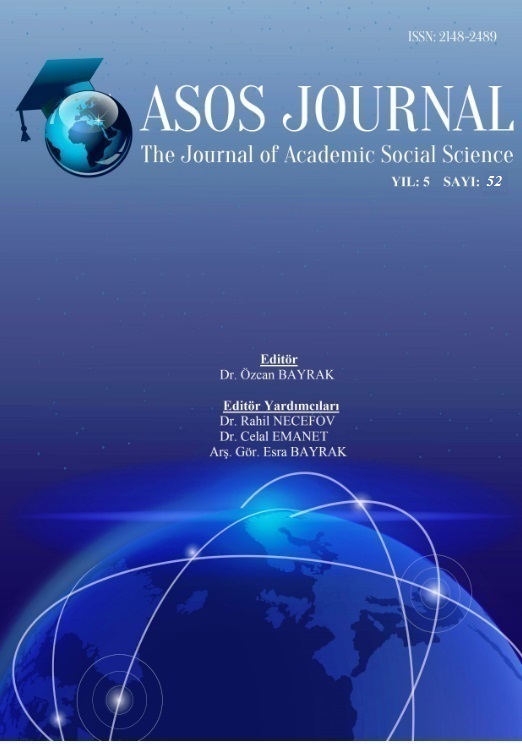Author :
Abstract
Avrupa ve Hint alt kıtası halkları sömürge dönemlerinde birbirlerini tanıma fırsatı bulmuş, bu tanışıklık kıtalararası tavır ve yaklaşım farklılıklarını gözler önüne sermiştir. Cinsiyet gözetilerek uygulanan bebek katli, çok kadınla evlilik, bebeklik çağında evlilik, Purdah sistemi, geniş aile biçiminde yaşama ve kast sistemi gibi birtakım adetler, İngilizlerin bu toplumu küçümsemesine neden olmuştur. Batıda eğitim alan ve Avrupa Liberalizmiyle tanışan Hintliler, giderek kendi değer sistemlerine eleştirel yaklaşmışlardır. Kültürlerinde bulunan ancak görmezden gelinen eşitsizlikleri, adaletsizlikleri ve baskıyı idrak etmiş ve eserlerinde dile getirmişlerdir. Var olanı içselleştirme, adeta kadına eziyete dönüşen uygulama ve adetlerin kökünü kazımayı hedefleyen sosyal bir reform hareketine dönüşmüştür. Kardeşlik, ahlaklılık, insan severlik, kastları reddetme ve kadının yüceltilmesi gibi değerleri içinde barındıran Brahmo Samac hareketinde yetişen Rabindranath Tagore eserlerini sevgiye dayalı bir anlatımla verir. Bu çalışmada, Tagore’un “Gora” adlı romanında ve öykülerinde, kadına bakış açısı, Hindistan’da kadının algılanma biçimi ve kadının toplum içinde oynadığı rol görüntülenmeye çalışılmıştır.
Keywords
Abstract
Peoples of Europe and Indian sub-continent obtained an opportunity to get to know each other during the colonial period and this acquaintance revealed the differences in intercontinental attitudes and approaches. Certain customs such as the killing of babies on the basis of gender, polygamy, marriage when a baby, purdah (sitting of men and women separately), living in extended families and the caste system caused the British to despise this society. Indians who received their education in the West and were introduced into European Liberalism, began to assume a critical approach towards their system of values. They perceived the inequalities, injustices and oppression, which existed in their culture but which they chose to ignore, and started to express them in their works. Internalization of the existing structure evolved into a social reform movement intended to eradicate practices and customs which turned almost into a torture of women. Rabindranath Tagore, who was raised in Brahmo Samaj movement, which involved values such as fraternity, morality, humanism, rejection of castes and glorification of womanhood, wrote works in a narrative style that was based on love. This study aims to demonstrate Tagore’s point of view of women, the way women are perceived in India and the role played by women in society in Tagore’s novel “Gora” and his stories.
